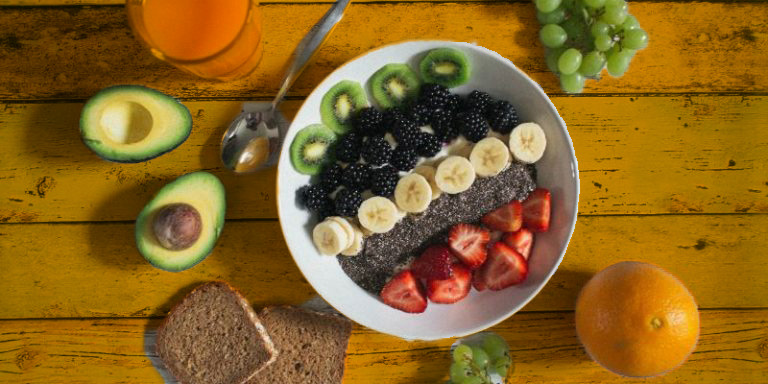In the hours before training, the main objective is to optimise energy and fluid reserves. During exercise, you should feel neither thirsty nor hungry, but it is equally important to avoid digestive problems. Especially during long (more than 1 hour) and/or intense training sessions, a sufficient carbohydrate intake is essential. Here are some tips on nutrition before running.
Reduce stress on the digestive system
There are a few things to keep in mind when it comes to nutrition before running training, because the digestive system needs to exert as little energy as possible, which would then not be usable by the muscles. Therefore, as an exception, it is not recommended to consume fresh, unprocessed foods, such as vegetables and wholemeal products. Products with a high protein or fat content, such as meat or cheese, are also difficult to digest and should therefore be consumed with caution.
As a rule of thumb, the closer you get to training, the smaller the meal should be!
About 3 hours before training
Your last normal meal should be about 3 hours before your running training and should contain mainly easily digestible carbohydrates such as pasta, potatoes or rice. The following meals are suitable: breakfast cereal with low-fat milk, spaghetti napoli, gschwellti (boiled potatoes with skin) with herb cream or a rice dish with a small portion of steamed carrots or courgettes.
1-2 hours before training
If the meal is eaten in the last 2 hours before training, lighter meals such as a small low-fat sandwich with white bread, sports bars, Biberli (honey biscuits), Basler Läckerli (biscuits with spices), rice wafers, a small ripe banana, a sports drink or a carbohydrate and protein shake are suitable.
The last hour before training
If you need an energy recharge before your run, you can eat a ripe banana, a low-fat sports bar or a fruit bar. For those who prefer liquids, carbohydrate gels or sports drinks may be a more appropriate choice.
Adequate fluid intake
The amount of fluid a person needs before and during exercise varies widely and depends on a number of factors. Thirst should be avoided in any case. The colour of urine, which should be light yellow, can be used as a control.
Take a test
Nutrition is a very individual matter. What works for one person may disturb the stomach of another. Therefore, it is advisable to experiment with timing and food during the training phase. However, the cause can also be the portion size. A full stomach often causes nausea and vomiting during running. Furthermore, sports drinks should only be drunk in sips, so that the stomach is not overloaded.
Performance diagnostics on Medbase
The sports scientists and doctors at Medbase check your performance level with an endurance test. On this basis, they explain to you in a clear and simple way how you can optimally integrate the results into your training.
Book now
 Author:
Author:
Franziska Zehnder, head of performance diagnostics, sports and exercise scientist MAS Nutrition and Health, Medbase Zurich Löwenstrasse.
Who is Medbase?
Medbase is the largest multidisciplinary sports medicine network in Switzerland and offers specialised sports medicine services for athletes, clubs and sports associations at all levels of activity in the areas of sports medicine, sports physiotherapy, performance diagnostics and training advice.
in Switzerland and offers specialised sports medicine services for athletes, clubs and sports associations at all levels of activity in the areas of sports medicine, sports physiotherapy, performance diagnostics and training advice.

